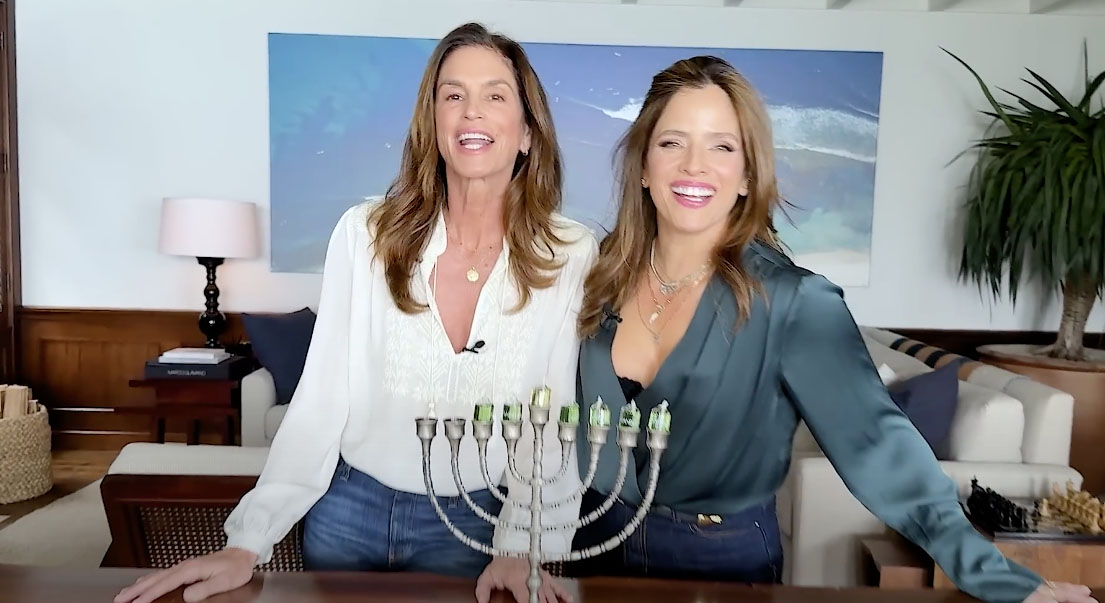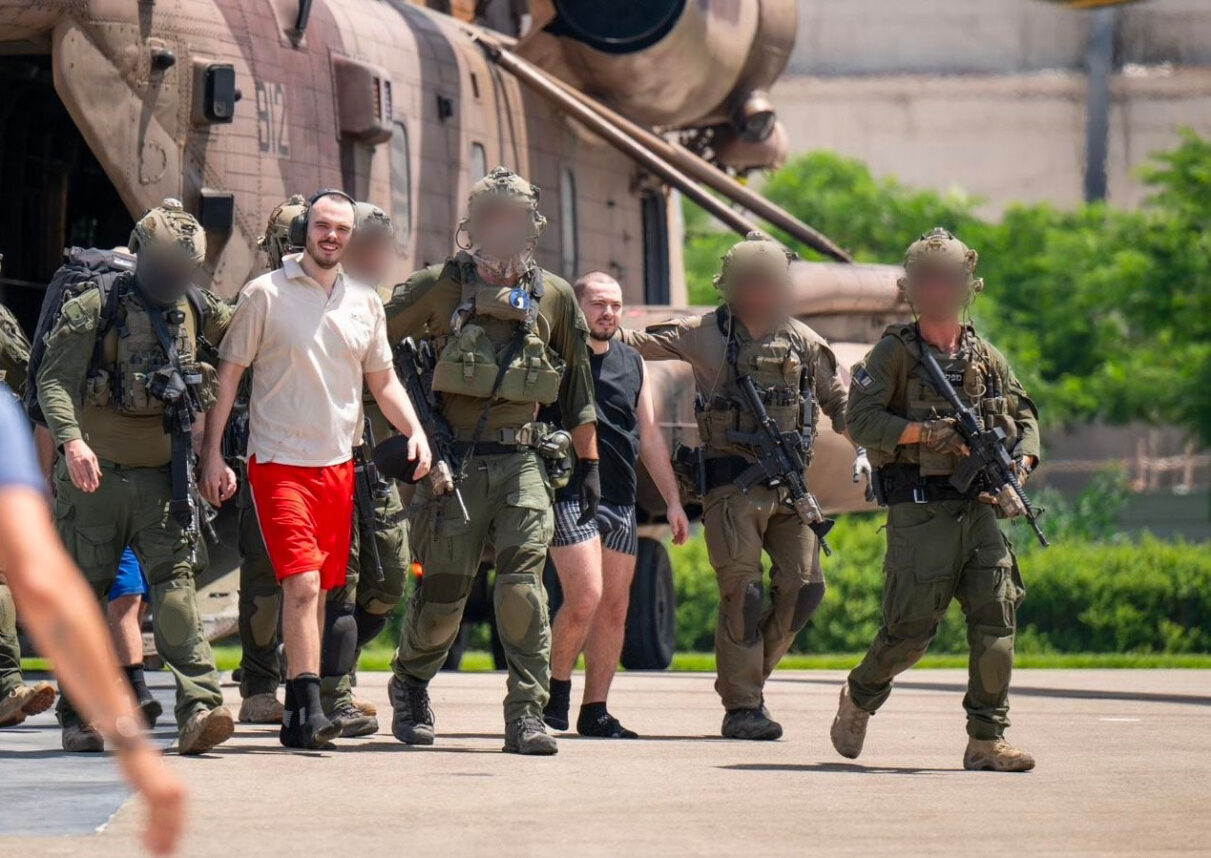Do you remember what it’s like to be in your 20s?
You’ve just finished college, or maybe you’ve had an entry-level job or two, or maybe you’ve put off entering "the real world" for another couple of years by going into grad school and into unbearable debt. You’re wondering what it all means and how exactly you fit in the picture. You’re unsure about almost every single thing and yet you are interested in all of it just the same.
As I sat on a small stage at the Universal Studios Hilton Hotel on Tuesday looking at the anxious, inquisitive faces of a few dozen 20-somethings who were here at this particular hour to find out about career options in the Jewish community, all the heady uncertainty of that decade came back to me in a rush. The panel was part of a three-day conference called Professional Leadership Project: 20-Something Think Tank and CareerBreak, which brought together 145 21-29 year olds from around the country to figure out the needs of the future Jewish community. Although the participants were brought here to be studied, their concerns for their own career paths were so palpable I could recall that time quite clearly.
OK, maybe it wasn’t so long ago that I left my 20s, but it certainly seems like a quite some time has passed since I was fresh out of college, facing a world spread out frighteningly in front of me, with a million opportunities and only one possible direction that I alone could decide to take.
"I’m listening to all of you talk about the paths you’ve taken to become Jewish professionals, and I’m wondering right now if I’m doing the right thing, if I’m in the right job," a participant from the audience said to the panel: Matthew Grossman (B’nai B’rith Youth Organization executive director), Michelle Kleinert (Gov. Arnold Schwarzenegger’s deputy director of community affairs), Craig Taubman (musician, composer, producer) and me. We, along with four others on a concurrent panel in another room, were meant to serve as young(ish) examples of Jewish professionals — people who have chosen to make their careers serving the Jewish community in one way or another. Sponsored by William M. Davidson, the Charles and Lynn Shusterman Family Foundation, Michael Steinhardt/Jewish Life Network, Eugene and Marcia Applebaum and Robert Aronson, the Aug. 22-24 conference may sound like many other well-funded, well-intended and well-attended ho-hum Jewish "renewal" programs, but in reality there was something different in the air, something that I would call the "winds of change" if I weren’t afraid of sounding like… an eager 20-something or an aging hippie.
Here’s the thing: As I sat on stage answering questions and giving advice about what it’s like to work in the Jewish community, based on having been in it for more than 10 years, I thought, when I was their age, I never had something like this.
When I was coming of age who was interested in what I thought? Who, besides my parents and friends, cared about my ideas? And I — like most whippersnappers — had puh-lenty of ideas. But who wanted to listen? Who was interested in how I could contribute meaningfully to the world, to the Jewish community, to anything at all? More importantly, who cared about what I wanted to change about the world, society and the Jewish community?
No one.
When I graduated college and tried to find myself, all I got — after hundreds of thousands of dollars spent on Jewish education, summer camp, seminars, leadership programs etc. — was to be told what was expected of me. To be told how I should fit in to the world around me, to be told what there was, take it or leave it. I went to lectures, programs, seminars, you name it, and there were plenty of people who were willing to tell me the way to lead my life, but it seemed like no one was really interested in anything I had to say. And why should they be? The world wasn’t created for me, it wasn’t stopping or changing just because I was about to participate in it and, sadly, it felt like the only way that there would be room for me is if I’d play by whatever and whosever rules were there. That’s life, right?
Ah, but maybe — and I don’t know, it’s just a thought sparked by this conference — maybe it doesn’t have to be that way.
PLP gathered 146 people — only about a third are already working in the Jewish community — in order to ask them what they think, to find out what they need in order to be involved in Jewish life, what they want to get from being Jewishly involved and how existing Jewish life could change (change!) in order to accommodate them. To attract them. To keep them. To retain them. To get these bright, talented, creative, young people who are just beginning their lives, to begin them in the Jewish community. Not at a computer start-up or law firm or theater company or secular nonprofit, but here in the Jewish community.
Here, in the Jewish community — you know, the one that always complains about "Brain Drain," about losing its best and its brightest, about the "graying" of Jewish community organizations, the Jewish community in which all institutions try and try and try to make themselves "relevant" and "meaningful" so that they can attract the next generation.
This generation, the one sitting right in front of me.
This "think tank" has gathered a few of that next generation here in order to survey them, and analyze them so that PLP can come up with the answers from the grass-roots. It’s the Howard Dean of Jewish programming: instead of established institutions providing top-down stop-gap solutions to the core issues facing the Jewish community, the think tank plans to glean information from the very focus group it is trying to attract. Results will be compiled, studied and published. The question is, of course, what will they find? And will anybody listen?
"Maybe it’s not fair of me to abandon [Jewish community work] because I was having a hard time," Rachel Hochheiser told me privately after our group discussion. Hochheiser, 26, had left her job at Hillel: The Foundation for Jewish Campus Life after three years because she felt "frustrated and burnt out," in her words, although they’re words I hear all the time from Jewish professionals. Hochheiser is currently getting her MBA in St. Louis, and now, after the emotional highs of the conference — of discussing Jewish issues pertaining to spirituality, history, current events, leadership and contribution — she was troubled: Should she work in the business world that she was being trained for, or go back to the Jewish world she loved but ultimately left?
"There is no career path in the Jewish community; there is no next step," she explained. When Jewish organizations worry about attracting the next generation, they lament the fact that their even within their own ranks, the primary color is gray. Hochheiser talks about it from the other end of the spectrum, from working inside Jewish organizations. "There is something for 25-year-olds, maybe 27-year-olds, and also for 45-year-olds," she said about jobs within Jewish organizations. She worried "what was going to happen when I turn 30? There’s just no middle ground."
The interesting thing about Hochheiser — and many other participants — was that money plays little part in deciding whether to become a Jewish professional.
"Money doesn’t matter, it’s just a certain threshold," Seattle resident Josh Miller said.
Many participants said they were willing to start at low salaries as long as there was promise for growth, because they believed the trade-off would be doing something they loved and believed in.
"I realize how much I care, how much I hope to continue working in the Jewish community," Hochheiser said.
Still, she and others have other concerns: Is there a level of professionalism in Jewish life that you can find in the outside world? Are there people who are open to new ideas?
At 30, Miller is at the end of the decade under examination, and he is confident in his career: post-MBA, he is now the director of Jconnect in Seattle (www.jconnectseattle.org), what he described as a nonprofit for social, religious and cultural activities for — guess who? — 20-somethings.
Why 20? What is it that is so important about this newly defined target group? (Most marketing groups are 18-24 and 25-34, and here, some of the 27- and 28-year-olds felt like they were in a different category than 21- and 22-year-olds.)
"I think we need some sort of 20-something successor to teen youth groups and Hillel," said Jason Brzoska, a 24-year-old from Albany who works at MyJewishLearning.com.
"There is no obvious path for someone who wants to remain involved Jewishly," he said, pointing out that men’s clubs, sisterhoods, all those things were for people who are older and/or in a more settled phase of life.
Times are a changin’. It used to be that after high school and college people got married — especially in the family-oriented Jewish community. Then they joined synagogues, had babies, sent them to Jewish schools, Jewish camps and even conferences. Today, as anyone who’s ever seen one episode of "Seinfeld" or "Friends" can attest, most people get married later. And while people in the Jewish community tend to get married at a somewhat younger age than the general population, it’s unusual to get married at 22. Or 23. Or 24 or even 25.
One way that the organized community has dealt with the changing times is to try push Jewish singles events: Get young Jews married to other Jews, the thinking goes, and then they’ll start having babies and families and be ready for the organized life of the Jewish community — in other words, for the men’s clubs, the sisterhoods, the federations and everything that already exists. That philosophy works, to an extent. New innovations like JDate and SpeedDating have been successful.
But successful at what? Preventing intermarriage, creating new Jewish families, finding someone’s soul mate, for sure. But is it a solution for creating Jewish leaders? For involving passionate post-college students who aren’t ready for marriage, but seem to be yearning for something else?
"Some sort of youth group for 20-somethings is what we need to remain connected to the Jewish world," Brzoska said. "Too many people get lost."
Most of the participants were far from lost, though. They were more like lit matches looking for the right hearth to light their fires. I met Yotam Hod, a 26-year-old public school teacher who had already worked for two years in the Peace Corps, and was just searching for any way to gain entry into working for his own community — maybe with Palestinian and Israeli kids, maybe first going back to graduate school in Jewish studies (alumni from various grad schools with Jewish programming also led a session).
There was Tamar Auber, who runs a nonprofit soup kitchen/food pantry/intervention center in Brooklyn that services 5,000 people. She’s only 26 and already feeling overwhelmed, but here, at the conference, found so many participants who want to volunteer. The conference also pushed volunteerism and philanthropy as ways to get involved Jewishly if you weren’t going to make it your career.
There was Rachel Cohen, who works for an ambassador at the United Nations and wants to improve the image of the Jewish people and Israel there.
And then there were a few people unsatisfied with their experience.
"I felt I missed out on the entire purpose I was coming for — I was trying to figure out how to get [other] 20-somethings involved that aren’t involved," said a 23-year-old Chicagoan, who preferred not to give his name.
"This think tank is not for blank slates," Rhoda Weisman, the executive director of PLP, said at the closing session of the conference, an open-mike evaluation session. "This is specifically for people who have strong Jewish passions, to be involved in something like this."
Questionnaires were filled out, the microphone was passed around, people said what they loved, what they didn’t love, what they’re going to do, what they hope to do.
Weisman previously worked for 10 years as chief creative officer for Hillel and much of this project is borne out of her experience in working closely with college students and within the Jewish organizational world. At 46, She is one of those "middle ground" professionals, and perhaps it is in this place that she can bring the fire of the youth to the hearth that is the staid Jewish organizational life.
"Initially our thoughts are that this could be the forerunner of an institution that will attract first-class people to the Jewish communal world and will incentivize them through fellowships, will mentor them, will keep them together throughout their careers, through various approaches," Michael Steinhardt told me from a lounge chair in the hotel lobby, where we were interrupted by dozens of conference participants who wanted to hang out with him. Steinhardt is one of the other impetuses behind this unprecedented project. As the founder of Birthright, the program that has sent thousands of 20-somethings on free trips to Israel, Steinhardt is used to defying the norm. Back then, he said, "they" said Birthright couldn’t be done, and now "it’s a transformative milestone of Jewish identity."
Will PLP be the next Birthright? Both Weisman and Steinhardt insist that the think tank part of the project is a one-time deal intended to produce an actionable study. But PLP as an organization is now incorporating into non-profit status to continue working with 20-somethings, providing fellowships and career guidance. PLP leaders are hoping what will turn into a continuing national program is CareerBreak — a mentoring program. After the three day conference, 25 participants will "shadow" Los Angeles Jewish professionals to get a taste of working life. Mentors include Jewish Federation President John Fishel, Progressive Jewish Alliance Executive Director Daniel Sokatch, Zimmer Museum Director Esther Netter and Pressman Academy Education Director Rabbi Mitchel Malkus.
"We don’t realize how difficult it is to get in [to Jewish life,] said Rabbi Ron Wolfson, University of Judaism’s vice president and dean of its Fingerhut School of Education, who is also serving as a CareerBreak mentor.
All mentors are being paid for their time, "because people need to know that Jewish professionals’ time and expertise is valuable too," Weisman said.
Full disclosure: the payment part came as news to me, as I had volunteered long ago to become a mentor. My mentee’s name is Lauren Leonardi, a writer who has spent the last five years in Savannah, Ga., and has recently moved back to N.Y. She feels deeply connected to Judaism, but is not sure how to incorporate it into her work.
"Why should I work at a Jewish newspaper?" she asked me. "Why should I work in Jewish life at all?" she said — and this was at the end of PLP on Tuesday night, before CareerBreak began. I’ll have been with her on Wednesday and Thursday, taking her with me to put together this newspaper. I don’t know how I’ll answer the questions — if I can even answer the questions — or if I’ll be a good mentor. Twenty-somethings aren’t the only ones with questions.





















 More news and opinions than at a Shabbat dinner, right in your inbox.
More news and opinions than at a Shabbat dinner, right in your inbox.